December 12, 2022
Losing a Loved One isn’t the Only Reason to Go to Grief Counseling
Written by Sara Lane
Posted in Trauma, Grief & Loss and with tags: grief counselling

When tragedy strikes, life changes…
When we talk about grief and loss, most people automatically think about death. Death is associated with grief and loss.
But what if your loss isn’t death… What if your loss doesn’t feel as “big” or “important” as the death of a friend or family member?
What kind of losses are we talking about? We’re talking about when someone loses a job, loses a pet, goes through a divorce or breakup, or loses the dream of having a baby.
- These losses are real.
- They can be painful.
- They can be sorrowful.
- There might be shame or guilt.
A person experiencing one of these losses may absolutely need the help of a trained grief and loss counselor.
Whether they’re naive or unaware, friends and family members have famously tried to console others with the line, “Other people have it so much worse” or “At least (this) didn’t happen to you.”
Statements such as these tend to diminish the pain and suffering others may be feeling. To unintentionally diminish the feelings of someone experiencing one of these losses can feel awful.
Whether you’re the one facing this type of loss or you’re trying to support a grieving friend or family member, just remember that everyone’s grief journey is as unique as their DNA.
Here are several different types of losses and the common ways that these types of grief can impact us:
1.) Job Loss
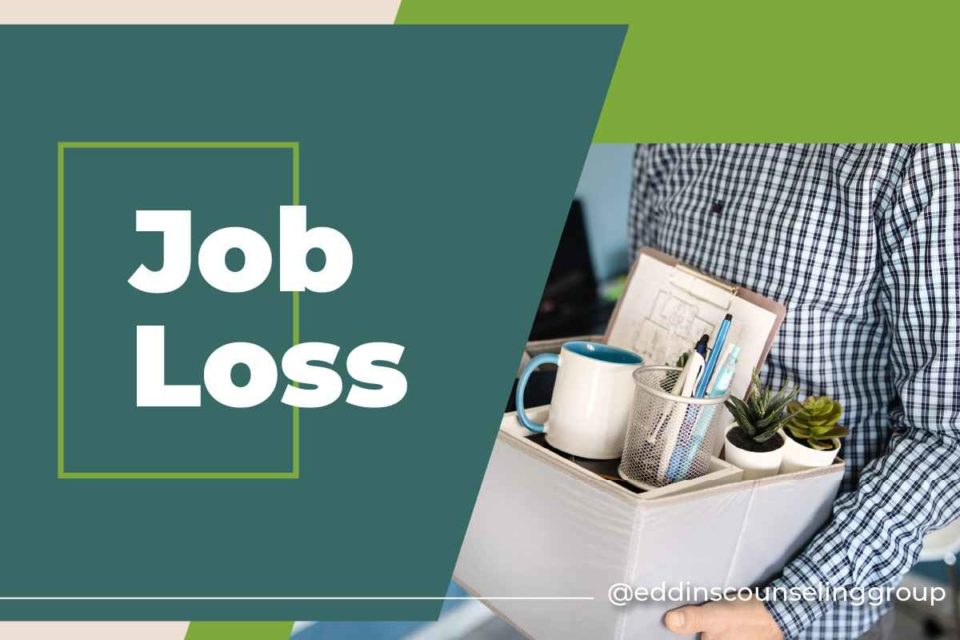
Losing a job can carry many different emotions and ramifications for different people. For those who would consider themselves the breadwinner of their family, losing a job could add a great deal of stress and anxiety to your current financial situation.
This could then exacerbate other relational problems with your spouse, and further create challenges for you and your family.
Tackling the loss of a job is difficult.
What were the circumstances of your job loss?
- Did your job loss come out of nowhere?
- Did you knowingly violate company policy and find yourself terminated immediately?
- Did extenuating circumstances (COVID, a change in the economy, or the actions of others) cause your job loss?
- Was it company-wide layoffs?
The factors surrounding the job loss may add fuel to the fire. You may be feeling:
- Shock
- Denial
- Anger
- Depression
- Bitterness
- Resentment
- Shame
- Guilt
- Fear
- Overwhelm
- Acceptance
- Hope
- And more
These feelings and emotions are common in those working through the stages of grief.
Many bonds can be made with fellow coworkers and friends in the workplace. The idea of suddenly losing those friendships may feel overwhelming. After all, we tend to spend more time with our “work families” than we do with our own families.
You may be excited for new career opportunities while also worrying that the pace and type of work you enjoyed in your previous position may not be present in your next one.
The “what ifs” may kick in:
- What if I can’t find a new job?
- What if I find a new job but I don’t like it?
- What if I find a new job but can’t stand my boss (or the work environment)?
- What if I can’t find a new job that pays my bills?
These worries and feelings of grief are a common result of job loss. The important thing to remember is that your skills and experience have helped prepare you for your future.
Even if your next position isn’t exactly like your old role, that’s okay. It might even be better.
Dealing with the Loss of a Job
- No matter where life takes you after a job loss, take the time to grieve your loss.
- Consider career counseling to help you navigate the uncertainty ahead. You may be at a loss for where to go next: try feeling out your best fit for a career before diving into your next job placement. You may be surprised to find that you’re suited for work you’ve always wanted to try but never thought you had the skills or experience for!
- Consider financial guidance from a trusted financial advisor to help you budget your money during your sabbatical. Keeping your expenditures in check may help alleviate some of the worry you may feel due to the lack of income.
- If you find that your conversations with family members are more heated than they used to be, consider family counseling to talk through ways you feel pressured or guilty due to the loss of your job. Find ways to communicate together that don’t put other family members down, even in the midst of a very harrowing experience.
2.) Loss of a Pet
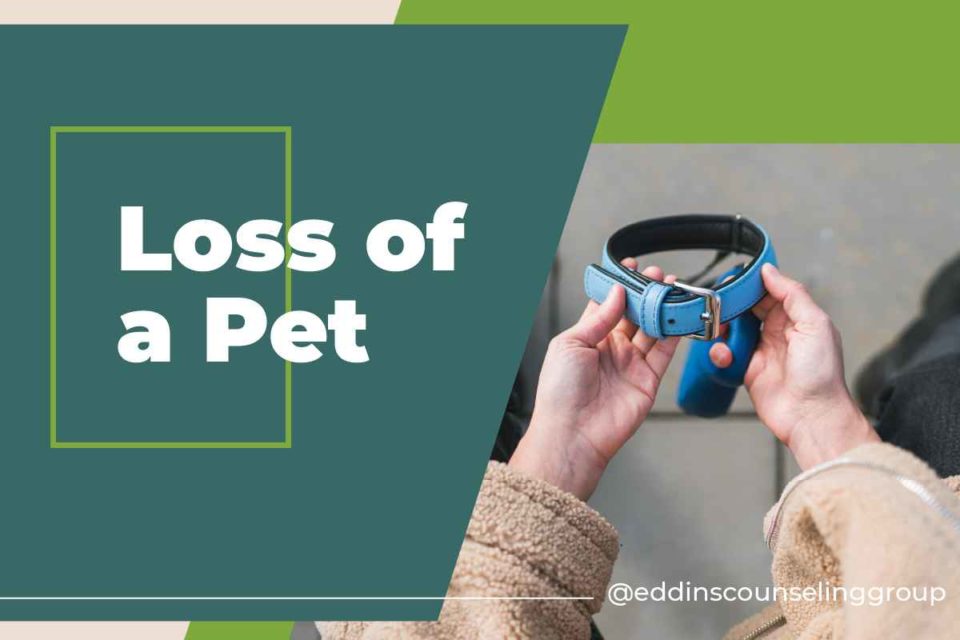
Losing a pet can feel like losing a member of your family.
Pet loss is a common experience for many pet owners. Our furry friends unfortunately do not have as long of a lifespan as we do, and that means that we may need to say goodbye to them often before we go ourselves.
Whether your loss was due to ripe old age, illness, an accident, or another unexpected death, losing a beloved pet can be a difficult experience to navigate.
Dealing with the Loss of a Pet
Start with acknowledging your loss. Consider finding ways to memorialize your pet with pictures, cremation, or crafts.
For example, when “Bruce” died, Bruce’s family decided to creatively give back to their community in Bruce’s memory. At Bruce’s favorite beach, the family added a large box of tennis balls to commemorate one of his favorite hobbies.
While donating in your dog’s name could never take away the enormity of the loss you feel, it can bring meaning to the death of your pet by bringing joy to others.
Even though you’re hurting right now, you may be able to remind yourself of the great times you had together.
Consider the following options:
- Creating a photo album on Shutterfly,
- Producing a short movie clip on your iPhone, or even
- Whipping up a reel on Instagram.
A project like this can help you remember your good times and may even give you the time and space you need to shed some tears.
We’ve heard from many clients that their pets are their “fur babies” so losing a pet is not some insignificant blip on the screen.
In particular, we’ve heard from many childless clients or single clients that their pet was their companion in life. It is absolutely okay to grieve this loss.
After Bruce passed away, his family missed the comfort of having a furry friend to snuggle up with at home. The family took a trip down to the local animal shelter and found a dog who needed a home.
When the time is right for you (or your family), this is an option but not a must. Don’t feel pressured to get a new pet right away just to get rid of sad feelings.
Those sad feelings you’re experiencing are a part of the grieving process.
That’s why taking the time to mourn the loss of your pet is so important. And if and when you’re ready, you can think about opening your heart to a new pet.
3.) Divorce or Breakups

Losing a loved one doesn’t always end in death. Sometimes one of the most painful experiences we feel is the process of divorce or breakup.
Whether that person was the love of your life or the parent of your children, losing someone you opened your heart to is no small thing.
You may be experiencing a wide range of emotions in conjunction with the breakup:
- hurt,
- rejection,
- depression,
- anger,
- sorrow,
- anxiety,
- relief,
- freedom,
- and many others.
There isn’t just one emotion that people who experience a breakup will feel. Rather, most people will feel a wide range of feelings related to the loss of a relationship. However, there are things you can do to help yourself move on after a breakup.
Dealing with a Divorce or Breakups
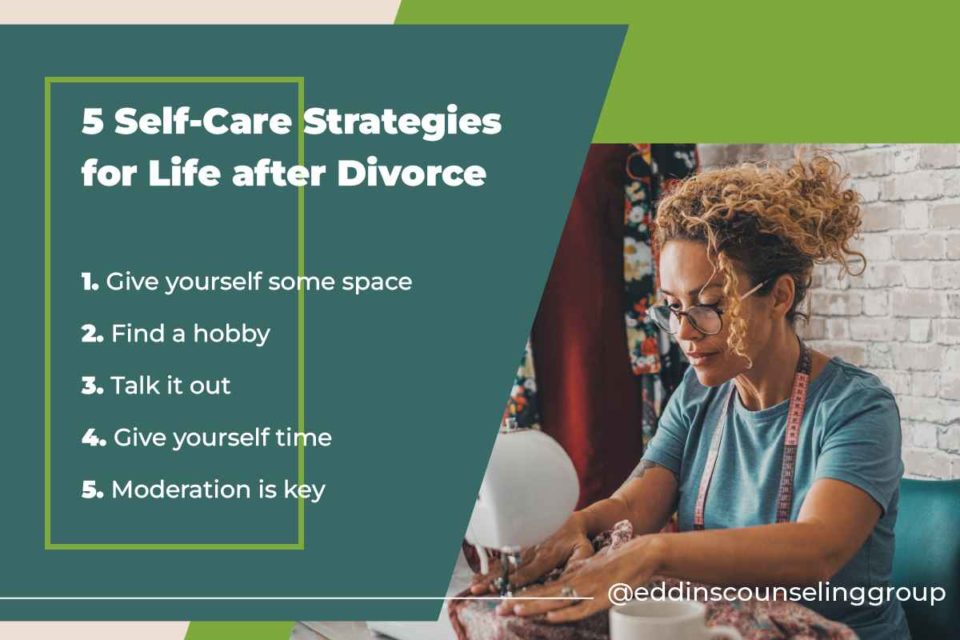
Some positive self-care strategies you can use to be kind to yourself after a breakup include:
- Give yourself some space. You may be ready to talk about what happened in your relationship with your friends or family. Or you might not. And that’s ok. Give yourself the space you need to process the breakup and plan your next moves.
- Find a hobby. No matter how you choose to spend your time, try keeping active. Consider using your new “free time” to work on hobbies such as painting or making pottery, practicing yoga, listening to music, or working out.
- Talk it out. Be sure to find someone you can trust to talk through your experiences. Getting things off of your chest can make a big difference in your recovery process and grief journey.
- Give yourself time. Things might not be the same as they were and that’s okay. Even though your day to day life looks different, it doesn’t mean that you can’t have exciting things planned. Allow yourself the time to grieve what was before you jump right into anything new.
- Moderation is key. While you may enjoy an occasional Friday night drink, try to avoid alcohol and other substances when going through a breakup. This can prevent serious addictions or complications later on. Plus, it helps you move on faster by being able to process your emotions instead of masking them.
4.) Miscarriage & Infertility
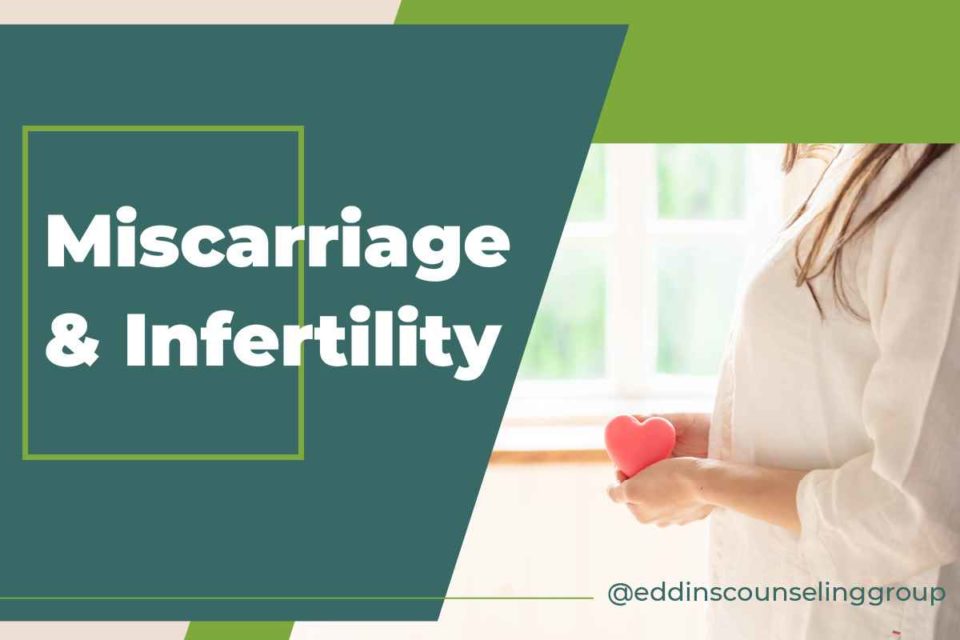
Losing a little one can make life look differently.
Whether you had the chance to hold your baby in your arms, or you’re grieving the chance to have children at all, losing a loved one who is so small can wreak big havoc on our hearts.
Wherever your grief journey takes you, know that you are not alone in it.
Dealing with Miscarriage & Infertility
- When tragedy strikes, do your best not to go it alone. If you’re struggling with infertility, consider your options.
- Reach out to others who have experienced the same thing. Consider joining a support group for parents (in-person, virtual, or even on Facebook) who have lost a child or are unable to conceive.
- Perhaps adoption is a route you and your spouse haven’t considered yet. For adoption (or infertility) grants, click here.
- If you decide to research fertility clinics, remember to look outside your geographical region. Clinics such as CNY Fertility in New York State are well known for their accessible fertility care (ie. lower costs), their many national and international patients (who travel due to the lower costs), and their own in-house financing (no credit check needed). Of course, remember to research fertility grants and loans to help offset any potential medical expenses. **See bottom for more information on grants.
- If you’ve experienced a stillbirth or miscarriage, consider memorializing your child with a funeral service. The hospital may not have given you a birth certificate, but don’t let that keep you from giving your child a name if you would like to.
- When struggling with the aftermath of child loss, surround yourself with loving support who can encourage you in your grief journey.
Remember, you are not alone.
When to Ask for Help
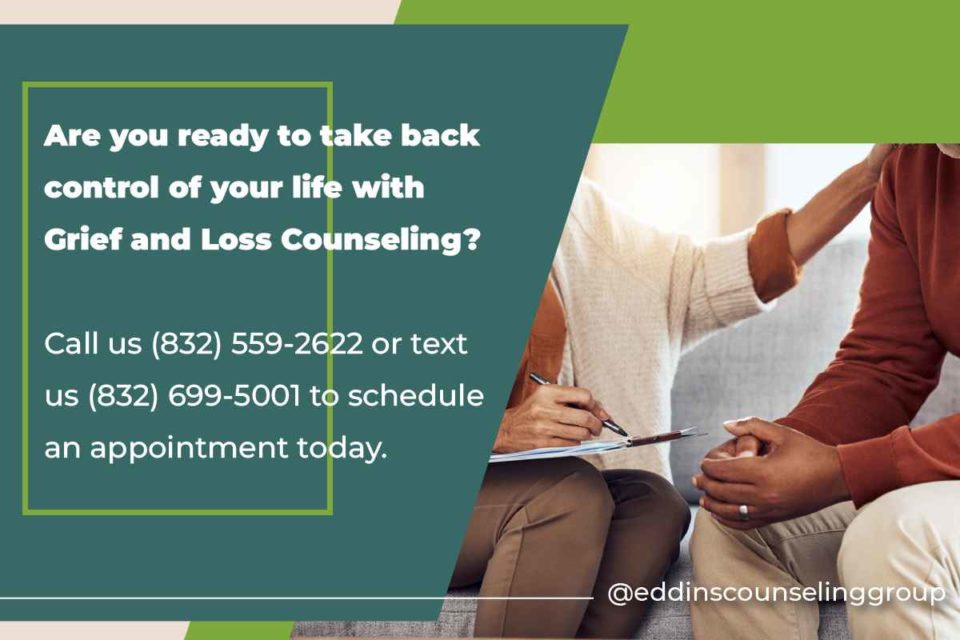
The important thing to remember is this: it’s never a bad time to ask for help.
- Whether the loss happened years ago or it’s incredibly fresh …
- Whether you’ve had time to work through your emotions or you’re drowning in grief and tears …
- Whether you feel put together or in shambles …
- Whether you feel okay on the outside but you’re crumbling on the inside, or you’re somewhere in between…
…help is here for you.
Grief counseling is intended to be a non-judgmental space where you can work with your therapist to release those intense feelings and find ways to move forward. Together.
You may not see a quick fix overnight. When things change and loss happens, life isn’t the same. It takes time to find ways to move on. And that’s ok.
Give yourself the benefit of time and grace during your grief journey.
Instead of telling yourself that you need to move on or that you don’t have a reason to be this sad, try allowing yourself to experience the loss fully. Allow yourself to cry when you’re sad. Be kind to yourself – as you would be to others – if you’re having a particularly difficult day.
Your mind, body, and emotions will be better for it. And it could just be the first step in your recovery.
To find a Houston, Montrose, or Sugar Land “right fit” therapist or talk to someone who can help you, give Eddins Counseling Group a call or text today.
Call (832) 559-2622 or text (832) 699-5001 or get started today.
Posts You Might Also Find Helpful:
- Webinar: Normalizing the Complexities of Grief
- 8 Strategies for Handling Grief in Marriage
- How to Help Someone Who is Grieving
- Webinar: Life After Pregnancy and Infant Loss (search for July 13, 2023 archived webinar)
Additional Information on Fertility Grants:
- Baby Quest Foundation
- Cade Foundation
- The Hope for Fertility Foundation
- Footsteps for Fertility Foundation
- Tree of Life Grant in Partnership with Fertility Foundation of Texas (for Jewish couples living in Central TX)
- The Garden of Life Grant in partnership with Sparkles of Life and the Houston Fertility Institute
Grounding & Self Soothing
Get instant access to your free ebook.
















